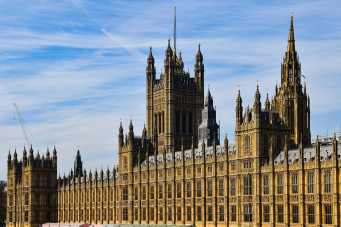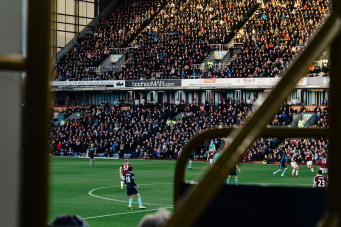
In The Frame – April ’16
Streaming / Online / Tech
Not surprisingly, mobiles and tablets have emerged as the ‘go-to’ devices that people use to watch downloaded on-demand content.
Research by Limelight Networks, which owns and manages a global, private content delivery network, said: “It is not surprising then to see that the mobile phone has eked out a victory over the personal computer as the device most often used to download digital content. What’s equally interesting is that the tablet is closing the gap on the personal computer as well.”
In the US, 71 per cent of the country’s so-called ‘core streamers’ (ie, people who spend at least 20 per cent of their TV/video viewing time streaming content and who represent 47 per cent of viewers) say that access to broadcast networks is one of the top features they value in an OTT service.
The battle between Amazon and Netflix is as hot as ever, with the former now promoting its Prime Video service as a standalone offering along with a new pricing schedule (currently available only in the US), and the latter preparing to raise the price of streaming HD TV shows and movies in the UK, after a promised two-year price-freeze.
Both OTT providers were busy at the recent MipTV, the global TV and digital content marketplace held annually in Cannes.
A new streaming service, FilmStruck, has been launched by Turner Communications. It’s been developed by Turner Classic Movies (TCM) in collaboration with the Criterion Collection.
Twitter and the NFL have agreed a deal which will see the social network broadcast Thursday night games online across the world free of charge, having last year signed a multi-year partnership to deliver daily video and other content. “Twitter is where live events unfold and is the right partner for the NFL,” NFL commissioner Roger Goodell said. Twitter beat competition from Facebook, Yahoo, Verizon and Amazon.
Facebook, however, has other plans, with the addition of new features for its Facebook Live functionality that make the offering more broadcast-like.
Elsewhere online, Google has attacked the effectiveness of TV adverts and suggested advertisers increase their spend on YouTube. A forthcoming report by the owner of YouTube – the world’s second largest search engine, behind Google.com – suggests that in 80 per cent of cases adverts on the video website are better in driving sales. The company will also soon add live TV listings to its search engine results pages, and display the apps and websites where you can view a show’s latest episode.
Few programmes better illustrate the battle among the terrestrial broadcasters – as well between them and their OTT competitors – than Top Gear and the shows it’s spawned.
The BBC’s version – retaining the original title – now has an online-only spin-off called Extra Gear, on BBC Three, which will “bring fans exclusive footage, interviews and behind-the-scenes access to the main show”.
ITV’s motoring show, Drive, has been likened to an extended version of Top Gear’s segment ‘star in a reasonably priced car’, but drew two million viewers which shouldn’t concern Chris Evans, the lead presenter of Top Gear, the acquisition of which has been confirmed by Netflix – a move that sees it go head-to-head against former host Jeremy Clarkson’s new motoring show on Amazon Prime.
Meanwhile, former Top Gear trio Jeremy Clarkson, James May and Richard Hammond have joined forces with a co-founder of Zeebox (now known as Beamly) to launch a “bold digital venture” to sit alongside their new series for Amazon Prime Video.
BBC News
Six weeks on from BBC Three’s move online and the network’s digital controller, Damian Kavanagh, seems happy, as does its audience – backed up by strong viewing figures for its new drama, Thirteen. “These are early days for BBC Three but I’m overjoyed with what we’ve achieved so far,” Kavanagh said.
The BBC has launched a dedicated app for children, which will offer more than 10,000 episodes of age-appropriate content. BBC iPlayer Kids is a standalone iPlayer app that curates BBC content from CBeebies and CBBC. It’ll be free to download and allows up to four children to create.
The BBC has also launched an ambitious new strategy “that will hardwire diversity and inclusion into everything the Corporation does, on- and off-air,” according to bbc.co.uk. Director-General Tony Hall said: “We have made some excellent progress to date on diversity and social mobility – and we should celebrate that – but we can, and must, do more. At its very core, our purpose is to represent everyone and give opportunities to people from all backgrounds.”
Culture secretary John Whittingdale could ask the BBC to trial a new paid-for service on the iPlayer as it cracks down on viewers without TV licences watching online. This would be designed to close the £150 million ‘iPlayer loophole’, which we wrote about in last November’s edition of In The Frame….
And finally…
- The final Grand National shown on Channel 4 before the switch to ITV attracted a peak viewing figure of ten million, vindicating the decision to push back the traditional start time.
- Almost a third of UK adults feel quality of TV has got worse, according to Ofcom’s annual UK Audience Attitudes Towards Broadcast Media
- The BBC and Netflix are to make a new version of Watership Down, Richard Adams’s seminal children’s novel.
- The BBC and BT Sport have extended their FA Cup rights deal until 2021.
- This year’s NAB show, described on its website as “the world’s largest annual convention covering filmed entertainment and the development, management and delivery of content across all mediums”, was attended by more than 100,000 people from 187 countries.
Looking for more freelance bookings or to boost your broadcast career? Contact Frame 25 today.

How the Employment Rights Act 2025 Is Reshaping the Freelance Market

Umbrella Company Reforms - An Overview
